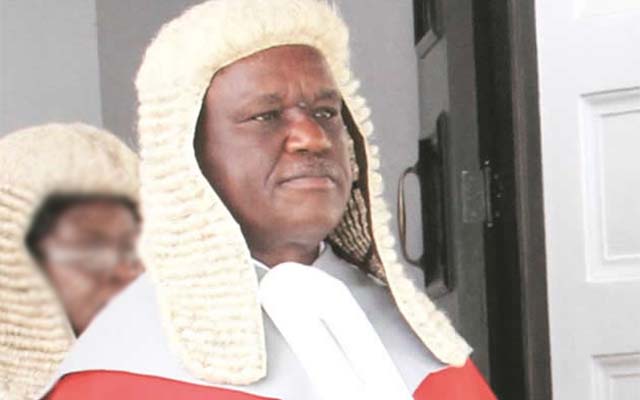Concourt hits out at lax AG • ‘. . . don’t take national interest for granted’ • . . . didn’t contest constitutional challenge


Justice Malaba
Daniel Nemukuyu Senior Court Reporter
DEPUTY Chief Justice Luke Malaba yesterday rapped the Attorney-General’s Office for taking a lackadaisical approach when representing the Government in court cases of national importance.
The top judge said the esteemed office was failing to treat matters of public importance with the seriousness they deserve.
The Deputy CJ’s censure will resonate with many who have raised concern with the AG’s Office in the wake of the botching of several cases where the State lost not on matters of law, but through wilful incompetence of State counsels.
Justice Malaba made the remarks while sitting with eight other judges of the Constitutional Court in a matter in which a Harare woman, Ms Emelda Mhuriro, was contesting the constitutionality of Sections 18 (1) and (3) of the Labour Act.
Also read:
The pieces of legislation only allow female employees with at least one year service to go on fully-paid maternity leave thrice with one employer.
The laws give a limit of the maternity leave periods for women and also deny newly-employed women the right to maternity leave.
Ms Mhuriro is the general secretary of the Civil Service Employees’ Association.
A chief law officer in the AG’s Office invited the court’s comments when she stood up and indicated that her office was not opposed to the striking down of the laws and that she had no submissions to make.
“My instructions are not to oppose this application and we will abide by the decision of the court in this matter,” the senior officer said.
The AG’s office never filed any responses in the matter and did not even file any heads of argument to assist the court in coming up with an appropriate decision in such a matter of public interest.
Justice Malaba quickly chipped in: “We are concerned that the office of the AG takes a position of not assisting the court at all in such a matter of public importance.
“It is a Constitutional matter that involves not only the applicant, but the nation at large. In fact, it is a matter of national importance.
“There is a law that is being challenged and you cannot simply take the case lightly and just say, ‘We are not opposed’.”
The judge added: “The matter has been taken very lightly. It has been taken for granted.”
The chief law officer could not stand the heat.
She made a U-turn and sought a postponement to allow her to take further instructions in light of the court’s concern.
“With the court’s indulgence, may I take further instructions and possibly come up with some submissions to make in court,” said the chief law officer.
The Constitutional Court then postponed the case indefinitely to allow the AG’s office to make submissions on the question of whether or not Ms Mhuriro has legal standing to challenge the laws.
The AG’s office is also expected to submit arguments on whether or not the challenged provisions of the law are a reasonable limitation on the right of the applicant.
Ms Mhuriro filed her application in January this year, but the AG’s office appeared in court eight months later without filing any response.
The woman’s lawyer Mr Caleb Mucheche of Matsikidze and Mucheche law firm at one point, sought the assistance of the court on how to proceed with the matter considering that the AG’s office had decided to ignore the application despite being properly served.
The registrar then responded by asking Ms Mhuriro’s lawyers to file heads of argument.
Ms Mhuriro contends that the laws were unconstitutional as they violate Section 65 (7) of the Constitution, which grants unrestricted fully-paid maternity leave as a right to all working women.
She argued that that Section 65 (7) of the Constitution of Zimbabwe guaranteed unlimited right to maternity leave to all female employees, but Section 18(1) and (3) of the Labour Act and Section 39(1), (3) and (4) of the Public Service Regulations, Statutory Instrument 1 of 2000 set conditions for the enjoyment of the right, thereby discriminating against newly employed women.









Comments